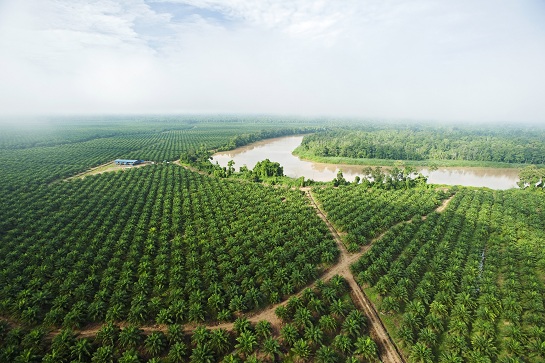- Bringing logging companies in line with FSC certification standards in the Congo Basin
- Building knowledge about climate change adaptation in Congo Basin
- New 10-year research initiative to protect forests and reduce risks for forest communities
- Bioenergy, sustainability and trade-offs
- Landmark findings show mangroves key to fighting climate change
- Rural poor rely on forests for nearly a quarter of household income
- Integrating the management of timber and non-timber forest products in the Amazon
- Reviving frankincense and myrrh for livelihoods and conservation in Ethiopia
- Urgent call for action at Forest Day 5
- Shining a spotlight on Indonesia’s forests
- Pathways to impact

Bioenergy, sustainability and trade-offs
Biodiesel has been heralded as a green alternative to fossil fuels, but a CIFOR study has found that the carbon released from land conversion for biofuel production may take decades or even centuries to reverse, raising serious questions about sustainability.
"Bioenergy development has implications for land tenure, for food security, for livelihoods and for the environment. By building our knowledge ... we are more likely to develop bioenergy policies that are effective for both producer and consumer countries."
Louis Verchot
CIFOR Principal Scientist
‘It really matters how you produce biofuels and what land you grow it on as to whether you are going to get climate change benefits,’ said CIFOR Principal Scientist Louis Verchot.
‘Biofuels that result in the conversion of natural ecosystems are never going to be emission efficient. This study argues for appropriate spatial planning and being aware that anything that you do in the name of the atmosphere could have unanticipated consequences unless you look at the whole production system.’
The research finding is part of a study, funded by the European Commission, looking not only at the climate change implications of bioenergy, but also at the social and environmental implications of bioenergy development. CIFOR scientists and partners are studying the effectiveness of policies and regulations, with special emphasis on measures governing access to lands converted to biofuel production and the negative impacts on natural forests and local people making a living from those lands. The project has focused on Brazil, Ghana, Indonesia, Malaysia, Mexico and Zambia.
Throughout 2011, the project involved a wide range of stakeholders in a process of outreach and dissemination of research results. The findings about biofuel’s ‘carbon debt’ made a splash with media worldwide. Meetings with European parliamentarians, civil society and government ministries demonstrated the value of the research and the potential application of policy lessons to countries beyond the project zone. In August, the Southern African Development Community gathered to discuss the impacts of bioenergy development on land-use change, rural livelihoods and national economies in southern Africa. In September, stakeholders from Southeast Asia, Sub-Saharan Africa and Latin America met to exchange their own experiences on biofuel crop development.
‘Bioenergy development has implications for land tenure, for food security, for livelihoods and for the environment,’ Verchot said. ‘By building our knowledge about what works and what does not, and by sharing that knowledge through a web of stakeholder networks, we are more likely to develop bioenergy policies that are effective for both producer and consumer countries.’
